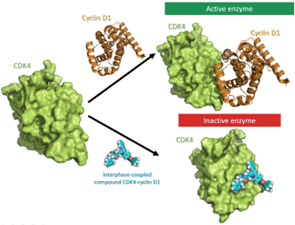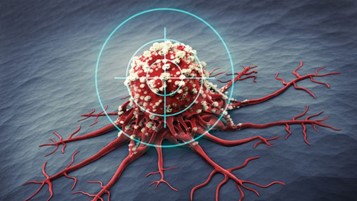Cancers such as glioblastoma, breast, pancreatic, and colon cancer represent a significant health burden, accounting for over half of all cancer diagnoses in Europe and contributing to more than 2 million cancer-related deaths annually. These cancers are characterized by their aggressiveness, resistance to conventional treatments, and the biological diversity among patients, complicating their management. A critical factor in their progression is the overexpression of the cyclin-dependent kinase 4 enzyme (CDK4), which is closely associated with tumor aggressiveness, treatment resistance, and poor patient outcomes. Despite advancements in cancer research, the current arsenal of targeted therapies remains insufficient to fully address the complexity and variability of these diseases, highlighting the urgent need for more effective and personalized treatments.

In response, researchers at the foundation FISABIO and the research institute IDiBE, in Spain, have identified some compounds that inhibit CDK4, offering promising potential for their development as medicinal products to treat these severe conditions.
Researchers have identified a family of compounds that function as inhibitors of the CDK4 enzyme, offering significant potential for developing new cancer treatments. These compounds specifically target cancers where CDK4 is overexpressed, such as glioblastoma, breast, pancreatic, and colon cancer. Unlike existing CDK4 inhibitors that focus on the ATP binding site—a region common to many other kinases—these compounds uniquely interfere with the interaction between CDK4 and its activating cyclin (Cyc D1). This novel mechanism of action opens promising avenues for more precise and effective therapeutic strategies.
Benefits:
- The inhibitors exhibit higher selectivity than conventional ATP-targeted inhibitors, reducing dosage requirements and minimizing side effects.
- The novel inhibition approach enables new treatment strategies for cancers resistant to existing treatments.
- They target a well-known and commercially validated therapeutic pathway, present in multiple cancer types, making them particularly promising for treating aggressive and hard-to-manage cancers.
This technology has currently been validated by in silico and in vitro assays, where its inhibition potential was confirmed in cancer cells. In addition, these compounds are already known to have low toxicity.
The represented institution is looking for a collaboration that leads to a commercial exploitation of the presented invention.
Institution:Foundation for the Promotion of Health and Biomedical Research of the Valencian Community (FISABIO) and the Institute for Research, Development and Innovation in Health Biotechnology of Elche (IDiBE).
TRL: 3-4
Protection status: Technology protected by a patent application (P202430551) presented in 2024 to the OEMP.
Contacto: Elisa Sáenz / e.saenz@viromii.com

